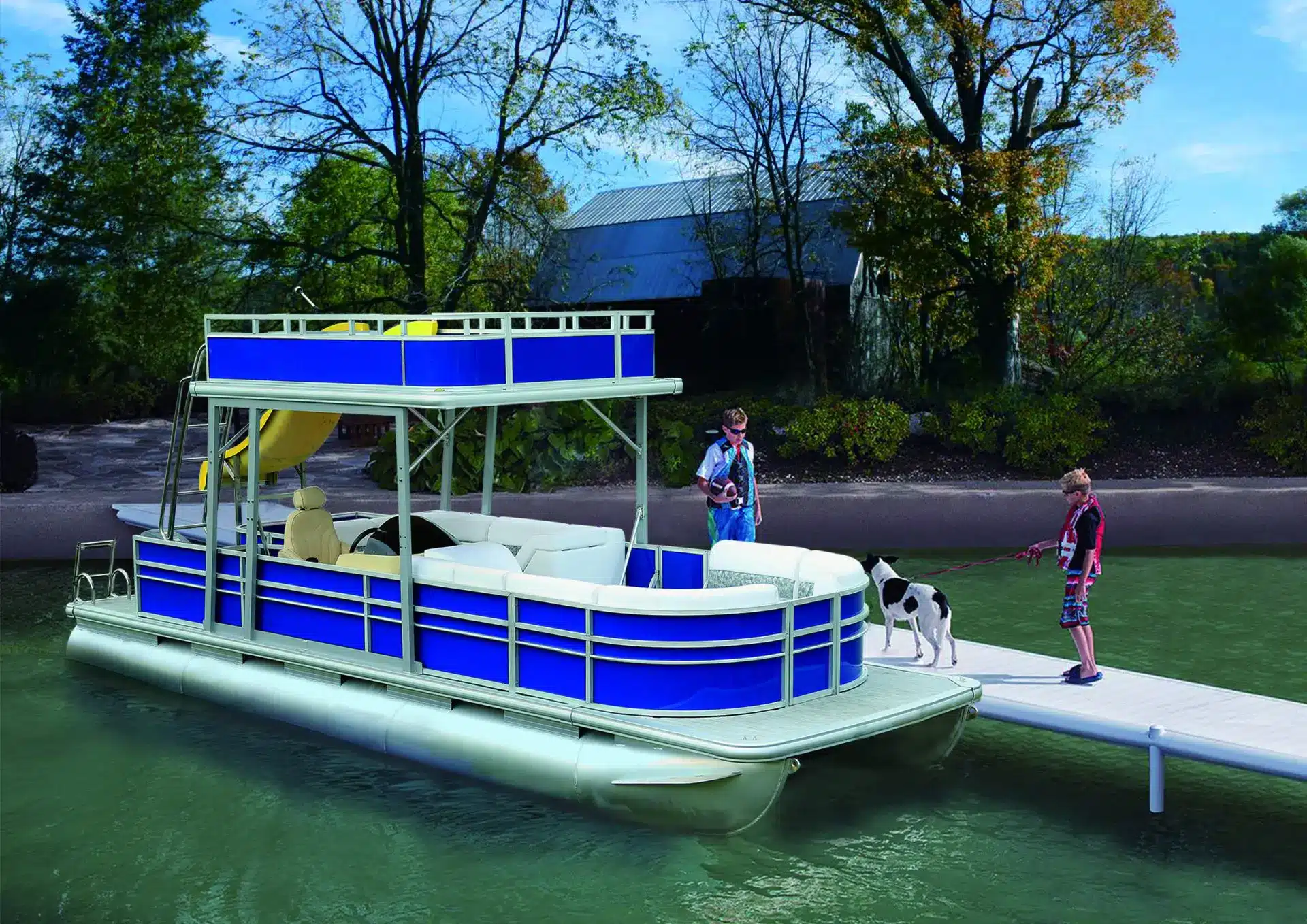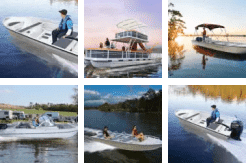
Saltwater anglers have a good problem—there are so many species from which to choose. Catching them all could be a full-time job, which in fact, it is! Only charter captains have that luxury, so what about the rest of us?
Taking it another step, which species are the easiest and most fun to catch? We narrowed the list to these fish that fit the bill for fun, ease of catching and for some, make excellent table fare.
Add to your summer boating fun with these tips for catching all-around favorites.
Tripletail
All about it: Catch the tastiest inshore fish of them all, while fishing for a species that is a master of disguise. The tripletail gets its name from the dimensions and placement of the dorsal and anal fins, which resemble additional tails. The tripletail has a triangular head with the eyes on top and close together, and by design they attack their prey from below. Tripletail can change colors to blend in with whatever floating objects they choose to hang around. When free floating in open water, they often lie on their side, or just below the surface. It’s easy to mistake a tasty, sporting tripletail for a clump of weeds or drifting debris, and that is how this predator likes it.
Fishing Tip: Floating shrimp and crab are favorite foods, although as opportunistic feeders the tripletail will make a meal of small baitfish, too. Tripletail gravitate to floating debris, with buoys at the top of the list. If you come up on the tripletail, you will be ready to grab the rig and make a cast. Dinner is served!
Flounder
All about it: Everyone likes a bargain and you get a two-for-one deal when fishing for flounder. The mild, delicate taste of flounder is highly valued by seafood lovers. For sporting value, you can’t beat the fight put up by a doormat-sized flounder. They are bottom feeders, and that aspect alone eliminates most of the water column, making it easier to begin your search. During summer, the rising water temperatures bring flounder into shallower water. Use that to your advantage on the low tide by exploring the exposed bottoms where flounder like to gather into schools. Key areas are calm waters buffered from strong currents that provide refuge for baitfish.
Fishing tip: Take advantage of low tide times to search for flounder areas. Deep holes surrounded by the exposed sandy flats on low tide are prime spots when the tide comes in. Bridges, edges of jetties or most any manmade structure that provides a current break are more ideal places to drop a live bait rig with shrimp.
Spotted Sea Trout
All about it: If you are looking for a fish that is easy to find and catch, the spotted sea trout (speckled trout) is for you. They do not migrate—unlike many inshore species—and tolerate a wide range of temperatures, from the low 60s to low 80s. They inhabit areas with grassy, sandy or muddy bottoms—especially shell beds. During summer, find trout in current-moving grass flats. If cruising the shallows, be on the lookout for mullet, a favorite of larger trout. Fish lower stages of the tide, which helps concentrate fish and narrows the search a bit. The last of the falling and first of the incoming tide is best.
Fishing tip: Keep three types of lures rigged at all times for trout. A topwater walking bait, subsurface minnow and soft plastic imitation baits. Those cover the water column from top to bottom. For schooling trout, a popping cork rig with live shrimp is a sure bet.
Great Barracuda
All about it: They are snubbed as trash fish by flats fishing purists, but what’s not to like about the great barracuda? This bully of the shallows strikes a lure with freight train velocity and makes explosive acrobatic leaps above the surface. What’s cool about ‘cuda is they can be stalked by sight fishing—just as you do for more prized flats species like bonefish and permit. Cooler temperatures drive them out of deep water and into the shallows, making them an ideal target in early fall.
Fishing tip: There are two ways to catch barracuda—sight fishing or blind casting. For either, tube lures in loud colors and large, chrome topwater plugs like a Heddon Zara Spook are best baits. Watch for barracuda to warm up on incoming tides. Long casts improve the odds of your bait getting spotted, and keep the bait moving, never slowing it down even when a ‘cuda approaches. When it does, get ready to hang on!
Mahi
All about it: Delicious to eat, fun to catch. Where there is one, there are two or more. The mahi is a willing striker, sight-casting friendly an often aerobatic fighter. If you live in warm-water climates you already know those accolades for arguably the most popular saltwater game fish. Mahi roam open water, frequently congregating around anything floating—weed lines or even floating debris. Whenever such a floating oasis is discovered, it’s worthwhile to make a stop for a few casts.
Fishing tip: Keep handy a 20-pound class spinning outfit rigged with a medium-sized ballyhoo. Should a fish appear, immediately pitch the bait or slowly troll it around the floating habitat. If a mahi hits, free-spool the bait, let the fish swallow it and set the hook. Other fish in the school might follow the catch back to the boat, so keep another outfit rigged and ready.




